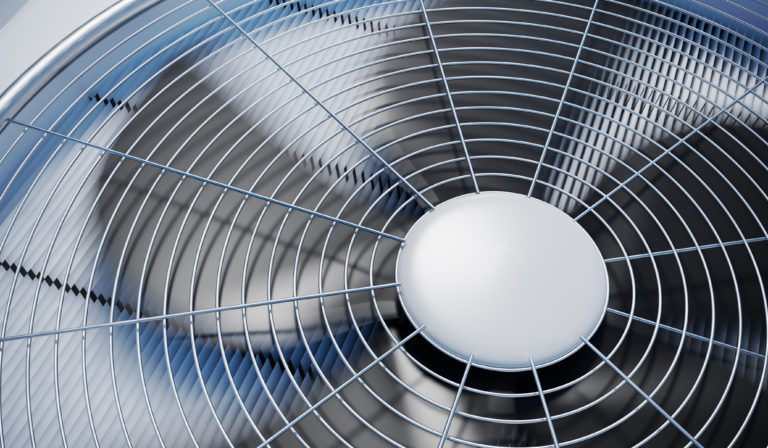1. Better Air Flow
There is an inconsistent flow of heated and cooled air. Because hot air is less dense than cold air, it rises and warms the higher levels of a building, including the attic. By constantly mixing warm and cool air, a running fan helps to maintain a steady temperature throughout the entire house.
2. Furnace Lasts Longer:
It’s not guaranteed that repeatedly running the furnace’s fan would shorten its lifespan. Keeping the fan running will help your equipment last longer, but only if it is installed correctly and your ducting is the right size.
3. Improved Quality of Indoor Air:
The filter in the furnace is always being used every time the fan is running. If you leave it on all the time, you might notice less dust in your home. Having a solid filter set up is crucial as well. Many different HVAC filter types exist, each with its own unique anti-allergen, anti-VOC, and anti-microbial properties.
4. Lower Relative Humidity:
By circulating air, HVAC systems help eliminate damp spots like restrooms. Mold is usually reduced when there is less moisture. There will be less of an impact on the respiratory health of you and your loved ones.
5. Blocked Ventilation System:
You can think of your air filter as a filter for the air that enters your system. That way, you won’t be inhaling any of the dirt, dust, or other particles that may have been caught in the ventilation system.
If your air filter is dirty, other parts of your system can stop working as intended. The air conditioner’s fan may be compelled to operate continuously if there is not enough airflow through the system. The impact of use on the equipment may increase over time, necessitating a replacement sooner than you might like.
6. Impeded Ventilation:
Clogged filters cause airflow restrictions. Your air conditioner won’t be able to do its job properly if the air in your home isn’t moving around enough. When it works too hard, it wastes energy. If the air conditioning fails to work, the outdoor fan may have to operate nonstop. It’s also possible that the problem is due to clogged or closed air conditioning vents, so check that all of them are open.
7. Leaving Doors and Windows Ajar:
Your home’s existing air is cooled by your air conditioner. When doors and windows are left open, heated outside air pushes the conditioned air indoors. As a result, the condenser, fan, and compressor will be operating continuously, resulting in increased energy consumption and premature component failure. Insulate unheated places like basements, attics, and crawlspaces, and make sure all windows and doors are closed and sealed properly.
8. The Size of the Unit Is Inadequate:
When the exterior air conditioner unit is properly sized, does the fan always run? A cooling system that is undersized for the space it needs to cool will have to run for a longer period of time. The A/C fan will run for longer, causing higher energy costs. If your current system is too tiny for your home, you should seriously consider upgrading.
9. Higher Outdoor Temperature
The Temperature is much higher than typical, this has become the new normal. On a very hot day, you may find that the outdoor Air Conditioner fan is running nonstop. That’s because your AC unit has to work harder to maintain a comfortable indoor temperature.
10. Condenser Unit Is Either Unclean Or Blocked:
Condenser heat loss can be mitigated by keeping the area surrounding it clear of leaves, twigs, and other debris. In an effort to disperse the heat, the fan will operate continually. Keep the area around the condenser unit clean, cut back any overgrown plants, and remove any leaves frequently to avoid this problem.
11. The Air Conditioner Contactor Is Jammed:
When the thermostat delivers a signal to the air conditioner, the contactor finishes the circuit. In the event that the contractor becomes jammed, the outside unit may keep running until the breaker is turned off.
12. Problems with the Ventilation System:
The exterior AC fan might potentially be affected by worn, old ductwork. If airflow is restricted due to blocked, deformed, or disconnected ducts, the fan may need to operate constantly. Make sure the vents are all sending out air. If it varies from vent to vent, air is escaping somewhere in your ducting. Dust and dirt buildup, rust and deterioration, and inadequate airflow are all signs that you need to contact an HVAC technician.
13. Cooling System Leak:
The system may deliver cool air to your home since the refrigerant draws heat out of the air. Leaking refrigerant can make the air conditioner work harder than usual. The outside fan will be forced to run constantly as a result. Filling the refrigerant in the air conditioning unit is a job for a professional technician.
14. Evaporator Coils Freeze Up:
The coils may freeze due to a lack of air circulation. The expansion of the ice further restricts airflow, which can lead to damage to the coils. Turning off the air conditioner will allow the evaporator coils to defrost. Once the ice has melted, clean the coils and, if required, replace the air filter. If the coils keep freezing up and the outdoor fan never stops, you should have a professional inspect the system.
15. The AC’s Fan is Broken:
A damaged fan blade will reduce the effectiveness of the fan. It will make up for it by being on all day. The blower motor could be malfunctioning, causing a fan to run constantly. A damaged fan will make noise, and only an aircon professional can determine what’s wrong and fix it.

